The day for Boys.
5 May is a Bank Holiday in Japan. It is called Children’s Day (こどもの日), but it is also called as Tango no Sekku (端午の節句), a day to wish for a healthy growing of boys. This tradition came from old China, and it is still celebrated in modern Japan. There are some special events and culture that you may be able to see if you are traveling to Japan during this time.
Also, the day falls on the busy vacation week of Japan called “Golden Week”. By reading this article, we are sure that you can enjoy Japanese culture a lot better.
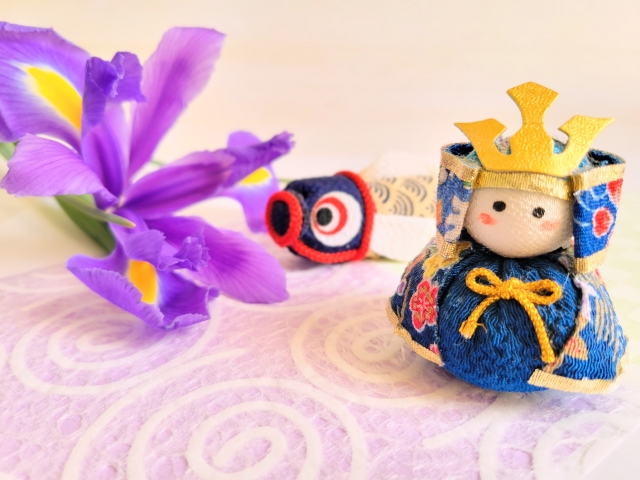
How did the day start?
In old China, odd number was believed to be bright, while even number was to be dark. “5 of May” has two odd numbers and it was considered too strong, so that it was a day to purify the body and to serve gods.
The day around 5 May has iris flowers blooming, whose pronunciation in Japanese also means “to think about military and martial art”, hence it became the day for boys.
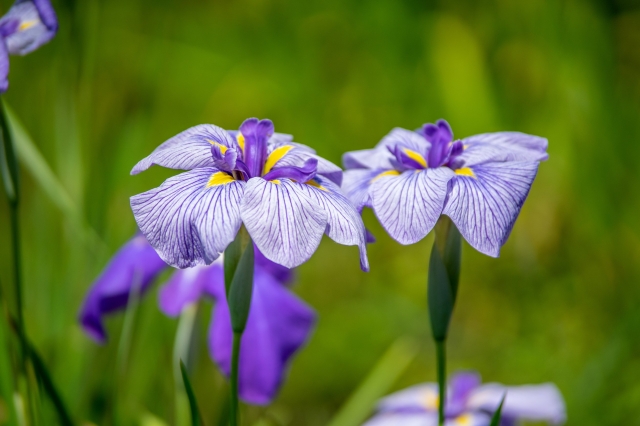
What can we see on the 5 of May?
Set of armour doll
Before the monsoon season, which usually takes place in June, people had to take their armour out for maintenance. Also, because the iris flower looked like a sword of Samurai, on 5 of May, we decorate a set of armour doll to wish for healthy growing of boys. When a boy is born, he will be given a set of armour doll according to Japanese custom.
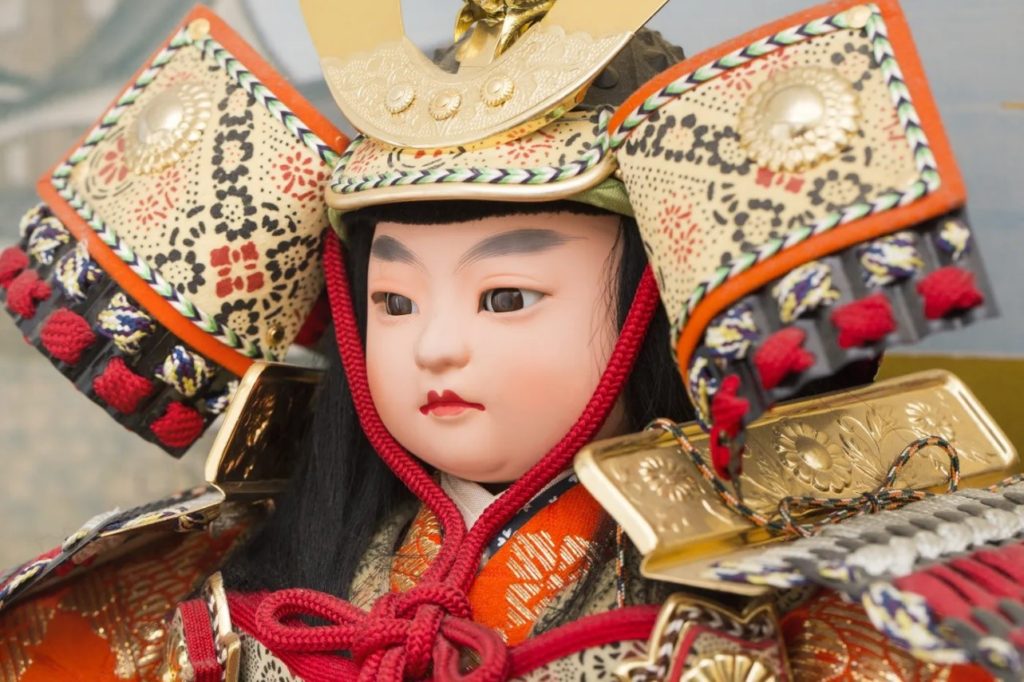
Koinobori Carp Streamer
When a boy was born in a house of Samurai, they also used a streamer to let others know about it. In Edo period, ordinally people also started imitating this custom.
They made a Carp Streamer, Koinobori (こいのぼり) in Japanese, because carp is a strong fish, and it means “success” in Japan and China. Although this custom is not seen in big cities due to restricted space, if you travel to a countryside, you may see big carp streamer in the sky.
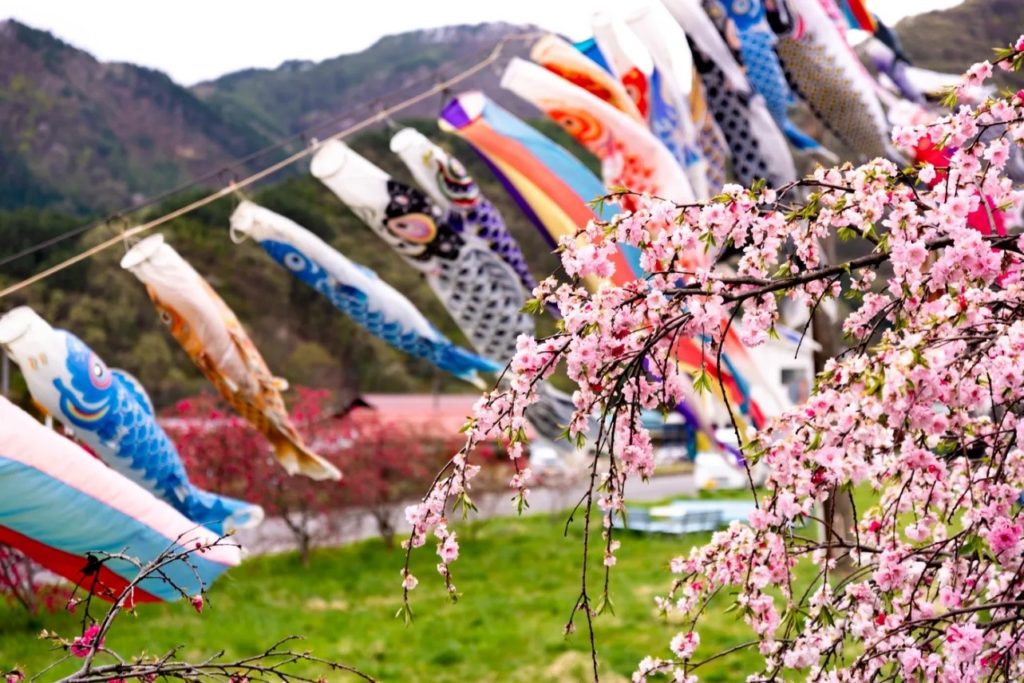
How can Muslims enjoy the day?
The day has no religious meaning, so you do not have to worry about this point. There also are special Mochi rice cakes eaten only on this day called Kashiwa Mochi and Chimaki. Both of them are Muslim-friendly, so Muslims can enjoy the celebration together!
Kashiwa Mochi (柏餅)
This is eaten more in the Eastern Japan, like Tokyo. Mochi itself is a round shape, but it is wrapped with a leaf from oak. The mochi is made from glutinous rice, sugar and red bean paste, so there is no haram ingredient, which is good news for Muslims.
The reason why oak leaf is used is that this tree never goes without leaves, so it is considered as a symbol of family prosperity, which was the most important value for a military family whose base was in Edo, current Tokyo.
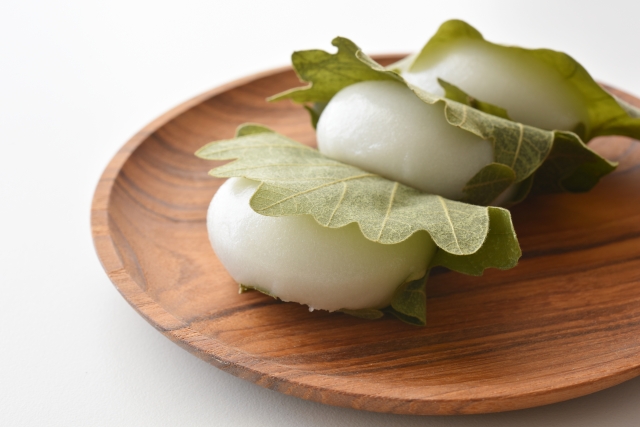
Chimaki (ちまき)
Chimaki, on the other hand, is more preferred in Western Japan, around Kyoto and Osaka.
The biggest difference from Kashiwa Mochi is that they use a leaf from bamboo and the shape is like a stick, and there is no red bean paste inside. Bamboo leaf is used because of the Chinese old story, which is believed to ward off evils.
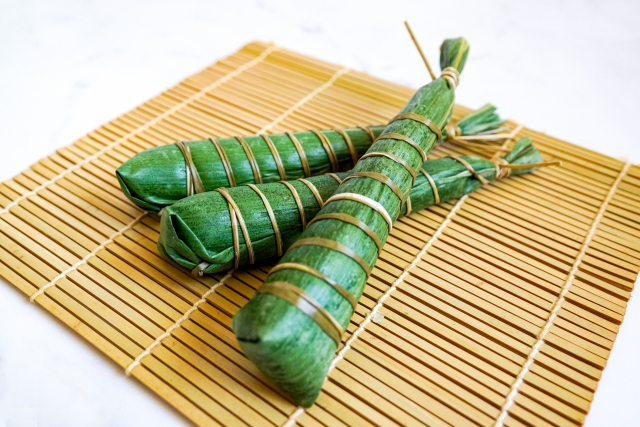
Seeing the fact that these two different types of Mochis eaten, you can see the culture is different depend on the region. Trying both of them would be an interesting experience!
One caution is that there is a Chinese food also called as Chimaki in Japan. This is totally different from the above sweet; It is a cooked rice with meat and mushroom, wrapped with a leaf, so do not make a mistake when buying one!
Advice over the holidays
Days around 5 May are the biggest Holidays for Japanese after New Year’s Day and Obon period in mid-August. This vacation in May takes place only in Japan, so as tourists you should be careful not to forget to make a reservation for hotels and transportation, as they will be fully booked.
The dates of Bank Holiday over Golden Week are as follows:
| 29 April | Showa Day |
| 3 May | Constitution Day |
| 4 May | Green Day |
| 5 May | Children’s Day |
Thanks to the great weather during this time, there will be so many events and festivals, too. We hope you can enjoy this special Japanese vacation!

